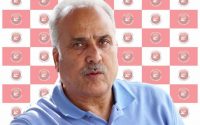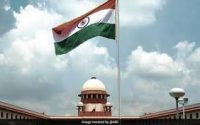$100 Website Offer
Get your personal website + domain for just $100.
Limited Time Offer!
Claim Your Website NowCM’s letter to Chief Justice not impermissible, but appropriate
Source:-https://www.newindianexpress.com
Recent events have been harrowing — a Chief Minister writing to the CJI making serious allegations against the senior most judge of the Supreme Court. We are not concerned with persons or the truth or otherwise of the allegations or the manner of making them, but with issues of great moment to our institutions and constitutional democracy.
Institutions are vital. Their working is influenced and determined by those who man them. The seriousness of the allegations and the person against whom they are made add to the gravity of the situation. More outrageous is the order passed by the High Court injuncting further investigation and placing an embargo on the media. This goes against the grain of a constitutional state. Unfortunately, that continues though it has no moral or legal support. It takes time for the State’s appeal in the Supreme Court to be listed. These events are all bizarre. We find all institutions wanting. The winds of change blow from the Steppes, they are chilly winds.
The argument about the letter violating the separation of powers or that it is contempt is insubstantial. What the Constitution forbids is discussion in the legislature with respect to the conduct of a judge of the superior judiciary in the discharge of his duties. What is alleged does not relate to the judge’s duties. These are matters that should be susceptible of any discussion anywhere. There is no, and indeed there cannot be any, embargo on the people discussing anything. No constitutional functionary including a judge is above the law and the keen scrutiny of the general public — the ultimatem sovereign.
In AM Bhattacharjee’s case, the Supreme Court has prescribed self-regulation through in-house procedure: the appropriate course is to approach the Chief Justice when there are doubts about a judge based on authentic and acceptable material. Hence, the letter to the CJI is not impermissible, but appropriate. Making that public cannot be condemned.
When ‘justice’ itself is not a cloistered virtue and is to suffer the scrutiny and comments of ordinary men, how can ‘justices’ be immune from such scrutiny? The complaint cannot be brushed aside on the score that the CM faced with cases against him which are directed to be speeded up, has resorted to this. The cases against corrupt politicians need to be speeded up and pursued. That is a different issue. The complaint needs to be looked into. This is not to suggest that there is truth in the allegations. But judges like Caesar’s wife should be above board — exemplary and seen to be so. “If the Supreme Court quails or fails, the nation, in the short run or long run, travails.”
The question incidentally arises whether seniority should be a criterion for appointment of CJI or for elevation to the Supreme Court. It is difficult to justify the composition of the Court on geographical lines or simply as an amalgam of various interests or a Court of High Court Chief Justices. Going by such criteria may be denying the Court the best available talent.
The Law Commission had recommended that the Supreme Court must consist of Judges who taken as a body are, as lawyers and men of vision, superior to the body of Judges manning the High Courts and that a convention be established that the appointment as the Chief Justice rests on special considerations of ability and experience as a competent administrator. Fears have been voiced that this could be misused. But the fear of perversion is no test of power. Every institution has been guilty of misusing powers conferred on it or appropriated by it. That cannot be an alibi for resisting any reform.
While the Constitution is silent about who is to be appointed CJI, the Memorandum of Procedure states that it should be the senior most judge of the Supreme Court considered fit to hold the office. This is an idea of wide import. In practice, the determination is not really consideration of whether the senior most judge is fit to hold office as CJI, but that he is not unfit for that.
Different variables of fitness are never put in the scales. There is only a determination that he is not unfit which means that hardly anyone would miss because he would pass the minimum eligibility. There is no assessment of leadership, integrity or equipment. This is no reflection on any past, present or future CJIs. How and by whom it is to be assessed is quite another matter not susceptible to any straight and easy answer.
Most of the troubles can be traced to the inadequacies of the system of judicial appointments. We have to pay heed to Macaulay’s admonition: Reform that you may preserve. We are also rudely reminded of Dr Ambedkar’s remarks, “… if things go wrong under the new Constitution, the reason will not be that we had a bad Constitution. What we will have to say is that man was vile.”
The trouble is that we don’t even think or talk about all this. It is time to bestow serious thought on these problems. Silence or apathy is unwholesome for our polity. Every section of the populace is duty bound to be concerned about our institutions and those who man them and debate these issues. That is not interfering with judicial independence. It would be strengthening the judiciary whose independence is not an end in itself but ‘only an inset in the larger picture of the nation’s free, forward march’. Views expressed are personal



